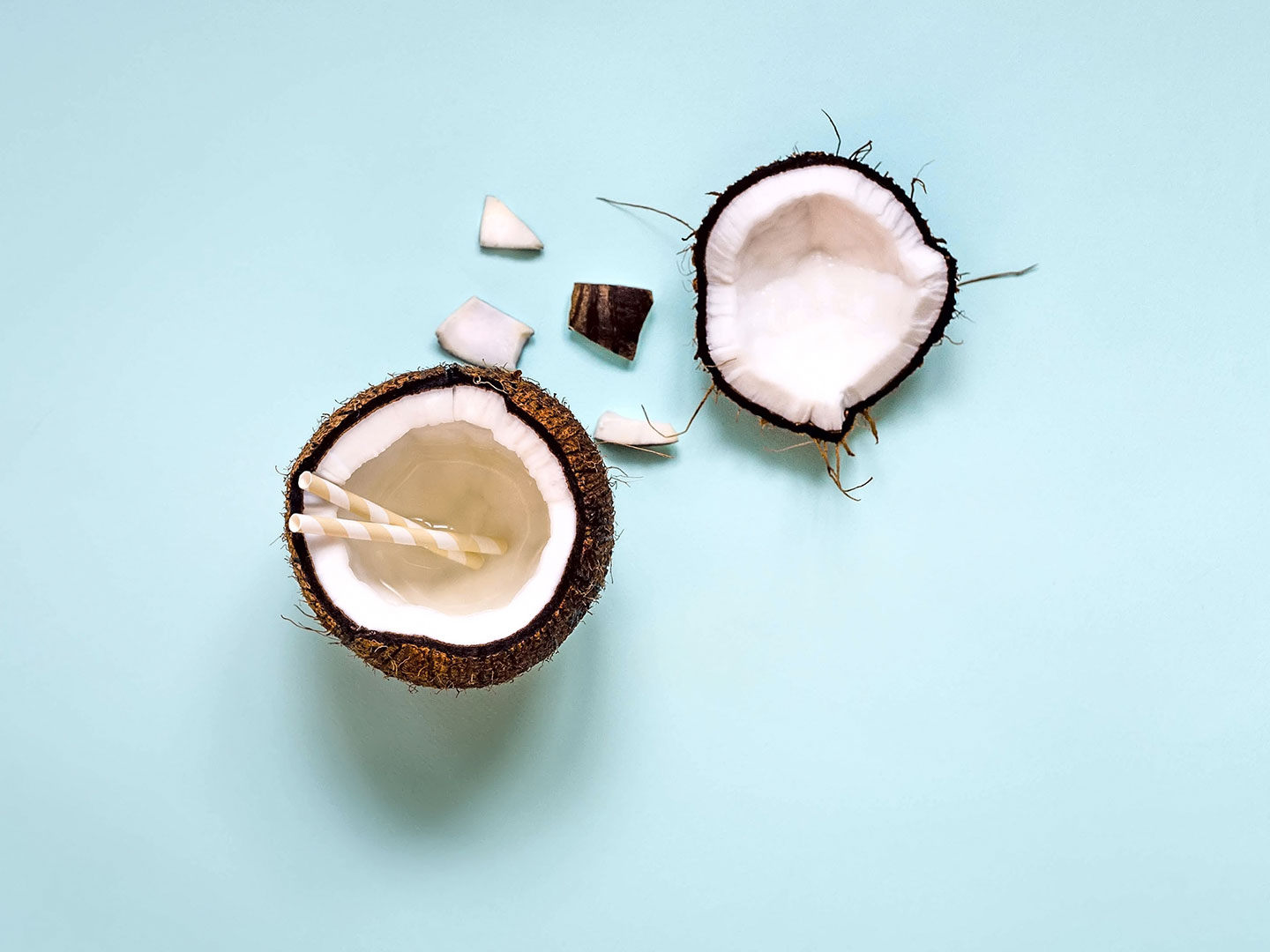



Coconut water is a liquid that’s naturally produced inside a coconut during its early stages of development. This water later turns into coconut meat as the coconut ripens. This meat is what coconut oil is extracted from. That’s why fresh coconut water is always harvested from young coconuts.
Both are liquids extracted from a coconut, but coconut water is the only form that can be harvested directly from a coconut without additional processing. You can crack open a young coconut and immediately drink its water. But coconut milk requires several additional steps of processing. The meat of a mature coconut is first grinded into a pulp, then pressed and soaked with hot water to produce a milk.
1 cup of coconut water contains just 6 grams of sugar, making it a healthy alternative to sports drinks and even fruit juices for people with diabetes. Just be sure to always drink coconut water without any extra added sugar or other sweetening ingredients. The good news is that coconut water tastes delicious on its own!
1 cup of coconut water contains 45 calories, making it safe to drink for people aiming for weight loss. But that doesn’t mean you should be chugging it endlessly like plain water. As with all things, moderation is key.
1 cup of coconut water contains 600 mg of potassium, which makes up 17% of your Daily Value, and is often more than what’s found in a sports drink! This natural electrolyte helps you stay better hydrated than plain water post workouts by replenishing lost electrolytes. For more intense workouts like a marathon though, you’ll likely need additional resources.
1 cup of coconut water contains 600 mg of potassium, which makes 17% of your Daily Value. That’s more than what a medium-sized banana contains, which is 422 mg. Balanced levels of potassium ensure you stay better hydrated, especially during a workout. And it turns out that increased potassium intake has also been shown to reduce blood pressure levels too!
Magnesium is an important mineral in your body that keeps your bones healthy and strong, supports your immune system, improves your mood. Coconut water is a significant source of magnesium, and 1 cup of it contains enough to meet 15% of your Daily Value.
Cytokinins are a type of phytohormone, or a plant hormone that’s found in coconut water. In general, phytohormones help control plant growth and reproductive development, while also protecting against pathogens and stress. In addition to helping plants in their regular functions, cytokinins have also been found to have significant anti-aging and anti-carcinogenic effects.
Coconut water is rich with a range of B vitamins, including vitamins B1, B2, B3, B5, B6, B7, and B9. These vitamins help to lower risk of diseases. Vitamin B9 is also known as folate, which reduces anemia during pregnancy.
Coconut water is a healthier alternative to many sugary drinks out there, as long as it doesn’t have additional sugar added to it and is produced from the purest and organic coconuts. But as with all things, moderation is key! Don’t use coconut water as a replacement for other important foods and nutrients your body needs. Enjoy it occasionally on a hot summer day, or mix your own drinks with it for the perfect dose of refreshment.
Sustainable Shades For many DIY enthusiasts and design aficionados, a fresh coat of paint is…
Cruelty-Free Solutions for a Healthier You Chronic inflammation can be a relentless foe, disrupting our…
Unleashing Your Brain's Potential In today's fast-paced world, maintaining sharp mental focus and cognitive agility…
Exploring DIY Organic Makeup Fixers For the eco-conscious beauty enthusiast, the quest for flawless makeup…
A Sensitive Exploration The clean beauty movement has taken the beauty world by storm. Consumers…
Taming the Mane Frizz – the bane of smooth hair dreams. It can transform a…
This website uses cookies.